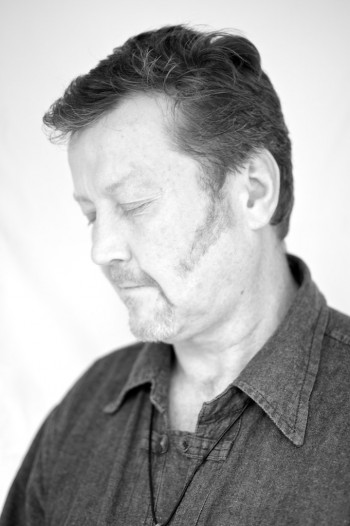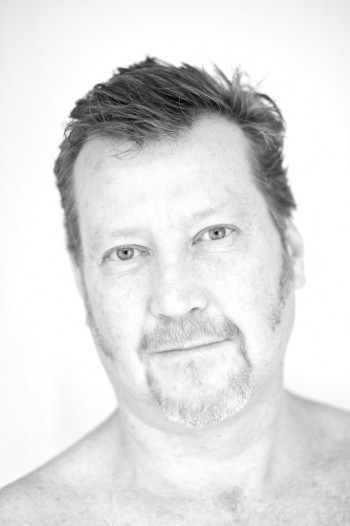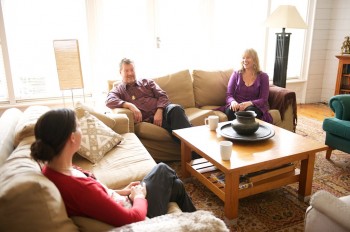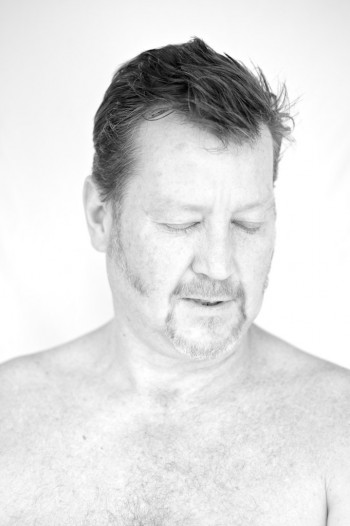Amnys Darbyshire: Playful exploration, body healing and self-care
The effervescent and joyful Amnys Darbyshire leads a diverse life, acquiring and experiencing spiritual knowledge to help heal others. Her energies have led her to a life of massage, yoga and wholefoods, and deep forays into fascinating territories such as menstruation and Eastern philosophies. I sat outside with Amnys to chat about her life and explorations; it was a sparkling Sunday morning with birds tweeting to their heart’s content.
Jess: The Soul Spectrum interviews people about soul and soulfulness, but I’m using those terms in a really broad sense to look at how people bring meaning into their lives. I’m starting off each conversation by asking people to tell me a little bit about themselves.
Amnys: Well, I’m a massage therapist and I’ve been doing that for about 10 years. I initially did my study in remedial massage in Canberra. Then I moved to the Central Coast to visit a friend and I saw a double rainbow from the sea to the land, as well as dolphins, and I thought, “I must move here!” As you do! And from there I met a really interesting lady who has mentored me to where I am now in a light way [more about this lady later]. I found some work doing remedial massage and I studied Tibetan massage, a branch of Tibetan medicine, and how that can intertwine with certain body types. I followed that study with Chi Nei Tsang, which is a Taoist abdominal massage. The Taoists say it is the highest kind of medicine, because you massage the abdomen and change the internal organ energy so it can be released and transformed. So I did a lot of work with these two techniques early on in my career. That’s the foundation of my massage technique and my concept of bodywork.
I also did a lot of Qi gong, which involved meditation to ensure your energy is very clear. Both of those methodologies have a base in spirituality and energy work, but they work with the physical body. During that time I started doing the Five Tibetans Yoga, which I practiced for years and years. This is an ancient form of yoga that I see as a basic and powerful life practice. It is five postures that you repeat 21 times each, beautifully simple and powerful.
When I moved to the Southern Highlands I started to take classes of other forms of yoga, which opened me up to much more and I fell more deeply in love with yoga. The first time I saw the sign for yoga teacher training [at Bowral Yoga Studio] I felt the call to become a teacher. And a year later I am now a yoga teacher as well as a massage therapist.
Jess: What was the compelling factor with massage in the first place? What drew you to doing massage in particular?
Amnys: I travelled for a few years when I was 18 and in that time I used to go to parties, raves, and things like that. I always ended up touching people and giving them a massage. I used to bring a little tube of hand cream so I could sit down with people and give them hand massages.
Jess: That would be a quite unique thing to do!
Amnys: It was! It was to connect with people. I would think, “I like you and I’m just going to give you a hand massage,” so I could connect with them. So that was a start and then I came back to Australia. I went back to Europe and I found my way to this gathering called the Rainbow Gathering, which is like a travelling festival that follows the moon cycle and it goes all around Europe. So I found myself on top of a mountain in Italy at this gathering. You had to climb this mountain for an hour to get to the top. When I reached the top I can still remember viewing this clearing and I could see teepees, tents, lots of hippies roaming around, I could the smell of smoke from fires, and I could hear the distant sound of drums beating. There I was given or initiated with reiki from this little Italian man called Gavani. It was over three days and on the last day we all had a day of silence and fasting, I had never done anything like this before in my life. I think that’s when I realised that I wanted to work with people. Healing and massage just opened up and I thought, “Okay, that’s a good start.”
Jess: A lot of people in the mainstream wouldn’t have been so open to a lot of the ideas that you’re talking about. So what was it about you and your background that would explain that kind of openness?
Amnys: Maybe when I was growing up… Well, I grew up on a farm, and when I was under 10 my younger sister and I shared a horse. And then one day I said, “I don’t want to look after this horse.” Mum said, “You either have to look after a horse and you can ride, or you can’t have a horse.” I didn’t want to do that so Mum said, “You have to do something.” Mum would say, “Go and try this or that,” so I got shipped off to all of these different courses. If I showed an interest in something, it would be supported. I would start doing tennis and then I would get over that. Then it would be, “Let’s do art, let’s go to art camp!” Then it landed on drama, which I did for most of my teens. As a kid you have to explore characters, and learn to be open and playful. So maybe it was about trying lots of different things, just exploring and experiencing.
Jess: It sounds like your Mum was really influential in the sense that she encouraged you to go out searching.
Amnys: Yes, to find and seek.
Jess: So what happened with drama, did you embrace that? Or was it just something that you took on board for a little while?
Amnys: I did and then I don’t know what happened. When I was about 16 or 17, I started getting really shy. I was out on the stage and I felt like, “No, I can’t do that!” So I started doing backstage stuff. And then it stopped when I left school.
Jess: What do you see when you are connecting with and massaging a person?
Amnys: It varies from person to person; each massage is different. To begin with I go very quiet, it’s like a meditation that I go into. Sometimes I get a lot of information, I see a lot of images, or it’s just a certain word that comes to me and I just sit with that. I’m feeling the energy of a person, just allowing my hands do what they do. Sometimes I go into people’s bodies with my mind’s eye and my intention, and I see a little ball or a block. So I bring my attention to that and in my mind I am touching whatever needs to be touched. It feels like I am listening to the body, I see nothing, but hear in pictures, it is a little odd to explain. Then sometimes I’m in a playful mood and I’ll just say, “I’m going to blow up that blockage!” [Laughs.] “I will shoot all of this energy over there!” That’s when I’m in my cheeky and playful mood. All of this is happening in my imagination as I am giving the hands-on massage. I do a lot of rocking movements that allow the body to realign with its own wisdom, so I give the body the space to come back to itself. It also helps me feel and see where the body is holding on. To me it feels as though I am just creating space within the body to come back naturally to balance and alignment. You know, sometimes when you get stuck in your head, just going for a walk creates space and it is all that you need to feel good again.
Jess: It gets the energy flowing again.
Amnys: Yes, and sometimes a massage is very straight down the line, I’m just working on sore shoulders, so I relax the muscles in the shoulder.
Jess: A more perfunctory massage?
Amnys: Yeah. It depends on the person and where they’re at. I always ask permission if they want information, if I get information, because it’s not up to me to just blurt it out.
Jess: On your business card you describe yourself as an intuitive massage therapist and that’s what you’re describing now. Do you find that people come to you because they want your help to find something within themselves?
Amnys: Yes, sometimes I do get people for that, or they want something shifted energetically, if they’ve got some issue communicating, or a heavy heart. I use the Chi Nei Tsang abdominal massage to assist with that. Sometimes I put my hands on people and I get flooded with information. That’s usually through massaging the abdomen, because that’s the emotional centre, and people can release from there and allow the energy to move through their bodies. But with those, because I think people are really powerful in their own sense, I’m more encouraging of their own wisdom that’s there. I don’t always encourage people to come back; they can go off and do it themselves. I’d much prefer that people learn how to self-care and self-nurture, so I give that kind of encouragement.
Jess: What kind of feedback do you get from the people that you are working with?
Trusting myself is probably the key to being an intuitive massage therapist.
Amnys: There’s a lot of, “That was great!” It’s hard to know because some people say, “That was the most amazing massage; that was very different to what I’ve experienced before; the whole body is tingling.” Sometimes I don’t remember what I say to people but they come back and say, “When you said that it was really true and all of this stuff has happened since that time.” I don’t usually ask, I just allow the person to be, which can actually be a bit tough hanging in the unknown, not knowing if I have done a good job or not. I see all of this stuff and I kind of want to get feedback that I have ‘nailed it’ but I just have to trust in myself and let go of being right or wrong. Trusting myself is probably the key to being an intuitive massage therapist.
Jess: It sounds like there is an inherent connection with energy and spirit for you, and an ability to intuit what is going on in a person. I’m just assuming that that was always there? Or did you realise one day that something was going on and that you’ve got this capacity to tap into a person’s energy and intuit quite accurately what’s going on in them?
Amnys: It was probably inherently there without me knowing as a child. My Dad remembers that, when I was little, he would be building things, and he always loved building with me because he would be building something and before he needed a tool I would be handing it to him. So that kind of thing was always there. I did a lot of training in intuition and how to use it in different ways. Techniques like reading symbols or shape shifting, and refining those skills. But I think it was very much my first nature of knowing how to do that, but then I worked on refining it.
Jess: So what does training in intuition entail? What does that look like?
Amnys: I did two years of intensive training with a guy called William Whitecloud who wrote a book called The Magician’s Way, personal development stuff, creating your life using your intuition as a guide, looking at beliefs, assumptions, tuning into people, reading their faces, intuitive writing, doing quite a lot of study and practice. In the course we studied hermetic philosophies, The Kabbalah. There is a book called The Path of Least Resistance by Robert Fritz, which is about understanding how energy moves. Even with the Tibetan philosophies and the Chi Nei Tsang there is quite a lot of meditative work. You have to work intuitively to feel things and become more sensitive. But the intuition training was more about learning to use that for your own guidance, letting intuition become the predominate creative force in your life. So you can tune into a vision that you or another person have, and receive information, and look at different aspects of it and see what the next step or action to take is. There was also a lot of written guidance as well. First learning how to get into that state, getting to a guide, talking to this guide and writing the information. But before I did any intuitive writing, I remember as a 19-year-old I was writing a lot of dark poetry and horrible things and then one day I wrote a question, “Why do I feel this way?” And then this whole different thing came out, my whole writing changed and I could never write like I was before again, it just [clicks fingers]…
Jess: Shifted…
Amnys: Yeah.
Jess: Quite dramatically by the sounds of it.
Amnys: I couldn’t do anything, it just changed that day. I can’t even read the past stuff.
Jess: So was that a move from the teenager stuff to something a bit more enlightened and adult?
Amnys: Yeah, I think so. There was also a lot of other stuff going on. I remember my first experience, around about the same time, of sitting with my friend and we were meditating and it’s the only experience that I’ve ever had like this, but I became connected. I just felt like I was connected with everything. I became light and I thought, “Oh my god, I’m in the universe!” I’ve never experienced anything like that ever since or before.
Jess: That’s very formative. I’m thinking again from a mainstream perspective that it’s all quite esoteric, and to jump into a lot of those things you need to feel confident and supported. Did you have a community around you in those early stages?
Amnys: Yes, I probably did. I studied Buddhism and I went to a lot of Buddhist meditation groups, so they were like-minded people. And I went travelling, so I went away from home and I found like-minded folks, I just followed my nose around. People just arrive when they need to arrive.
Jess: You mentioned earlier a mentor. Can you tell me a little bit about her?
Amnys: Her name is Barbara Elkins and she is an amazing woman, she has done so much in her life. She is turning 70 this year. We are both very excited. She’s done a lot of personal development work, she has had a few different businesses. She’s a really amazing artist, and she is also a seamstress; she now owns a company called Wisdom for Living, selling all sorts of natural remedies and products. The first time I met her I was looking for work in this particular area and I was late to the interview, because I had a bad head cold, and she was very direct with me and told me off for being late. Everything was against me, I wasn’t myself that day. So the next day I woke up early with a really strong urge to see her, I thought, “I’ve got to apologise to this lady.” So I saw her that day and apologised. I said, “I’m really sorry,” and that I did not expect to get the job but wanted to apologise, and she accepted my apology, she was just really lovely. Later she taught me the Five Tibetans and she took me under her wing, so our friendship grew from there. And along the way I then asked her to be my mentor.
Jess: That’s a big step to ask someone to be your mentor! Usually it just happens by default, you slowly develop a relationship like that with someone, but to actually ask, “Can you be my mentor?” is a big step. So, all of my questions are a pathway to learn more about you and your background. But The Soul Spectrum is focusing on the soul and spirit, and I think you probably answered some questions just by describing your background and your journey, but what is soul or spirit to you?
The soul is this thing that is connected to all time and space.
Amnys: I have this beautiful book called Anam Cara: Spiritual Wisdom of the Celtic World by John O’Donohue. He describes the soul as, well, the soul holds the body, the body doesn’t hold the soul. That is, the soul is this thing that is connected to all time and space. That’s what I think the soul is. There is an individual spark that is experiencing this life and this creativity through the form that we’re in and the life that we have. But spirit is the ether, it’s everywhere. It’s space, the experience that I mentioned when I was 19 or 20, that’s what I think spirit is. You can’t see it, you can see the movement of the wind, but you can’t see that wind. When you breathe in and out, the air that you breathe in has been taken in by the whole world. It’s that connection with everything. Being connected to that spiritual aspect and knowing that there is something beyond just the physical form. We are just a grain of sand. It excites me because I have no idea what it is, really. Words can’t really describe it. I can have senses of it and I could have experiences of it but it’s just part of something that is beyond my current understanding. But I connect better when I’m in that playful mood. Children are innocent and they are connected to that, they’re just in it, they’re just in innocence. It excites playfulness within me because I think, “I’m just this little thing and there’s all this stuff and I can explore it!”
Jess: It excites a sense of wonder and awe?
Amnys: Yeah!
Jess: So what’s a day in the life of Amnys like? What do you do on a day-to-day, weekly, monthly basis?
Amnys: I have a terrible habit of being interested in too many things. It’s a fun habit, I can’t help it. In the mornings I will get up early and either go to a yoga class or do my own practice of yoga and some joint mobilisation. I scull a litre of water first thing in the morning. And then I probably have a coffee with my boyfriend, and then it depends on the day, I could be massaging, teaching or working in my office job. So if I start later I generally do a bit of studying yoga because I am new into that. I’m really getting into menstruation and women’s mysteries and the spiritual aspect of that and how it’s so empowering. I also study Don Tolman, which is about wholefoods and how to heal the body through eating or fasting and more. And if I have a nice morning off I’ll sunbake in the backyard. In the afternoons I might do some painting and carving, so I’ve been exploring those things. Then in the afternoons sometimes I do another yoga class and do a bit more study and make some dinner. I’m a bit of a nanna, I like to go to bed early.
Jess: That’s living the good life, really, being able to have a long and restful sleep!
Amnys: Yeah! So I like to calm down in the evenings, either call a friend or read or watch some cool thing. My boyfriend and I have been dashing down to the beach and having a quick swim in the afternoon, which has been really lovely. Just dive in and say, “Okay we’re wet, let’s go home!” And once a week I have a date night with my boyfriend.
Jess: I wanted to ask about the recent decision to teach yoga. Can you tell me a little about that, what brought you to that decision?
Amnys: I always wanted to be a teacher but I didn’t know what I wanted to teach. So there’s been a yearning to teach something, but I’ve never had the feeling that I had the wisdom or the guts to teach. It began by asking Barbara, who is a teacher of the Five Tibetans, “How do you learn to teach this? And she said, “You learn from me.” So she was coaching me in how to teach it and I learnt it that way. When I moved to the Southern Highlands I got into doing lots of yoga, I went to different people’s classes. And then I saw Kate’s studio go up [Bowral Yoga Studio] and on her list it said ‘Teacher Training’ and I felt this hit in my heart, “You are going to do this!” And I thought, “What? Ah! Okay!” But it took me six months to actually tell Kate. So it’s like a calling and now I say to myself, “Oh my god, I’m home.” Teaching, I just love it to pieces, it’s just the most divine thing.
Jess: It’s quite an intensive course, it’s about a year’s worth of very intensive study and practice and then actually getting out there in front of a class and starting to teach. So how did you feel with your first go at teaching?
Amnys: It was pretty nerve-wracking. Through a series of events, me and another teacher just got thrown in the deep end to teach, but I like to do things that challenge me, so I was offered this opportunity and I thought, “Okay,” and I just kept saying yes to everything. But it was pretty nerve-wracking the first time and then it got easier. It’s still nerve-wracking.
Jess: So does it feel like your “real” vocation as opposed to massage? What’s the narrative that you tell yourself about the two and how they work together?
Amnys: I love working with people and the body. When it’s one-on-one, it’s such an honour to work so intimately with people, I get to touch a lot of people. So if I don’t massage my hands go, “I need to touch people!” But it’s quite labour-intensive, so I see yoga as having more longevity. But one leads into the other. I like being able to help people align themselves in a different sense and build that self-care idea. Yoga can facilitate more of that self-care. People can come to a class and maybe do some yoga at home, whereas a massage is more passive in that sense. But the study I’ve been doing with wholefoods will be the next aspect that combines the two.
Jess: So it’s all about body, mind and spirit, and encouraging people to look after themselves?
Amnys: I think it is. I get a lot of people who are very disempowered by the medical system. They seem to me as if they don’t have any say in it, we don’t know how to do things for ourselves, but you can actually quite easily take care of yourself and cure yourself from major things within a very short period of time, but people just don’t know that wisdom.
Jess: So when you say massage is labour intensive, that’s in the physical sense, but is it also energetically intensive?
Amnys: Yes, sometimes it can be. I am working with energy and I can give quite a firm massage. People know that I am touching them, I’m not doing fairy fingers. So physically, even if I wasn’t doing spiritual work, I’m very present, so it’s quite an intense focus. I can come out and I’m a space cadet after a massage. But I’m always learning to work with it.
Jess: You hear from people in the healing professions that a basic part of their training is to learn how to disconnect from negative and dark energy. Do you encounter that in your work? And if you do, how do you deal with it?
Amnys: I used to a bit, I would take people’s energy on. Some people also talk about protecting yourself, but I don’t really like that concept. I understand it and I’ve done that in the past, but I prefer to think that people are whole and complete. So whatever’s there, if it’s a negative thing, that’s actually a part of them and it’s through those wounds and in embracing your own darkness that you become whole. So I don’t think I encourage people to expel this energy, I encourage people to encompass that within themselves, because if you are all light then it becomes wishy-washy.
Jess: Your feet are not on the ground, I suppose?
Healing is about encompassing pain because life can be painful, but it’s part of the experience that we get to have.
Amnys: Yeah. I think of myself as a one-way street so I don’t take energy on. I don’t give my energy or do my best not to. I just draw it in from heaven and earth and that’s where it comes from. It’s not me taking it away from someone. If you face your shadow, well, it’s really hard at first and there’s embarrassment, fear or shame with whatever comes with that dark aspect, but when you learn to just say, “That’s just me being like that,” it actually makes you a more whole and complete person. So healing is about encompassing that pain because life can be painful, but it’s part of the experience that we get to have.
Jess: It gives you some depth.
Jess: So there’s a few things going on. What do you envisage for yourself from hereon? Perhaps in a few years time or even across your lifetime, if you’ve thought that far ahead?
Amnys: Well, I have, I was sitting up a tree in a cemetery contemplating my death…
Jess: That’s very Tibetan!
Amnys: I know, it was great! [Laughs.] I came out of there in this bliss. I foresee teaching being the main thing, encouraging people to listen to their own wisdom and get back into natural healing. Whether it’s massage or some kind of hands-on healing, something gentle, so that, as my body ages, I can still keep that connection with people. I might have some little munchkins. They can play too! So just building on what I’ve done so far, but I think very much the educational stuff. I have this term, the “utility belt” like Batman, so if you’ve got tools that you can use anywhere, wherever in the world, whatever is going on, you can, for example, just get rid of a headache if you do this exercise or drink water. So giving people the understanding that they’ve got these tools that they can use. Getting people to look after themselves. Go off and be amazing!
Jess: You’re very engaged and interested and you clearly have a really bright and sparky energy, but inevitably most of us will have a tough time or a bad day. How do you deal with that? How do you get yourself out of that space?
Amnys: The first thing I do is honour that emotion. I do my best to understand why it is. Give it the space. Because generally it’s the same story that comes up, it’s not anything new. It’s the same story of, “Oh, I can’t do this,” or “I’m not good enough,” or even “I’m lonely.” So that’s the first thing that I do. I don’t try to run away from it. I just let it be and then I go quiet. I go outside and listen to nature and just be still. And it’s like reconnecting with everything. And I remember the truth of what is driving me and why I’m here. Sometimes I do writing, sometimes I call a friend. I’ve got friends who have done a lot of the intuitive work with me. They’re really great because they don’t collude with me, they just laugh with me and bring back to life. But I also work with my menstruation cycle and I find when I do get blue that it’s around that time. It’s not always, but I honour that as well.
Jess: Can you tell me a little about what you’ve learned?
Amnys: I love menstruation, I think it’s part of women’s power. It’s the only blood let from the body that is natural. I work with my boyfriend with it, he’s amazing. If I feel premenstrual tension or something, if there’s agitation there I call it the Black Cat. There’s a story behind that, but “Black Catting” means, “Stay away from me or I may attack so let me be.” We have had conversations and we’ve come to an agreement. So if I’m in that mood he gives me space and he knows that whatever comes up and how I am is not a personal attack against him, so we’re quite mature in that way. I acknowledge that something is going on and then when I start bleeding I make sure that I rest. It doesn’t have to be the whole day but sometimes I just daydream or lie on the grass, I just allow whatever it is. It’s like a meditation, so I think about what’s going on, why am I feeling this way, I ask the questions. Sometimes I do a bit of writing, even talking to people, you get that information. And I sit down and talk with my partner about what was happening and then we move on from there. Sometimes it is something that we work on as a couple and other times it is something I need to address in my own life. Other times I can get quite prophetic information about my life and things that I need to shift and change. So, since doing that I have just been acknowledging when it comes up. And relationships are usually where it comes out the most. I think relationships are here for the development of our consciousness. Be conscious and move on then allow it to unfold.
Jess: Oftentimes when you’re in a heightened premenstrual tension state it’s usually a red flag saying that something is up. For the rest of your cycle you’re dealing with it okay, or you’re ignoring it or not really looking at it and, then premenstrual tension compels you to address whatever underlying issue is coming up.
Amnys: They say that the veil between the lives of this world and the other world comes down so you can’t pretend, there is no pretending, and in a lot of American Indian and ancient cultures women used to go away and bleed together on the new moon and oftentimes they would have quite prophetic dreams. There is a lot of information that comes in that time and they would come back and that wisdom from the women would be really important to the tribes. That’s the way I see it, I think it’s really important that what I get comes out. But also we’ve got hormones and stuff running around, it’s an altered state of consciousness, really it is.
Jess: I read one theory that premenstrual tension is a biological device to repel a partner because they haven’t made you pregnant! [Laughs.]
Amnys: I haven’t heard that! “You’re no use to me, be gone!” [Laughs.]
Jess: That’s right, you didn’t make me pregnant so I’ve got to clear the way for some new fella! It’s a nice theory but I won’t use it on my husband because he’s so lovely and special. Thanks so much, Amnys.
* For more information about Amnys Darbyshire, please visit http://www.naturaltherapypages.com.au/connect/purenessholistic/service/8182
* For more information about Hamish Ta-mé, please visit www.shotbyhamish.com
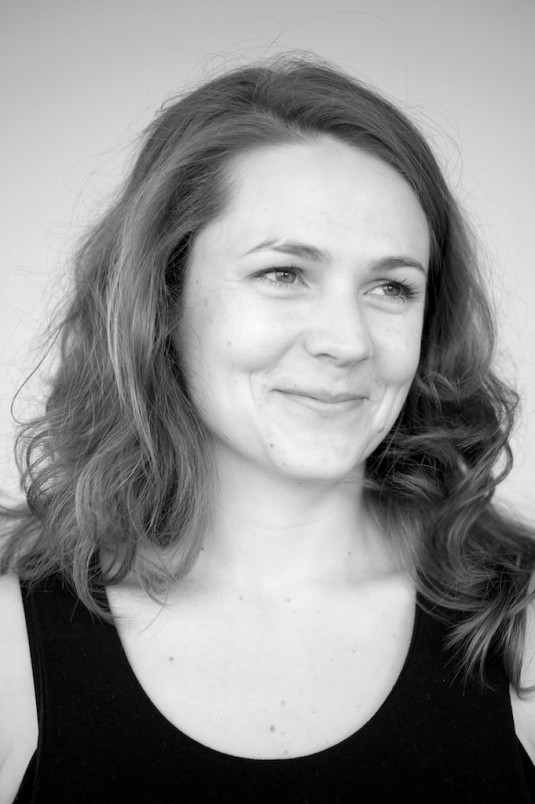 Amnys Darbyshire
Amnys Darbyshire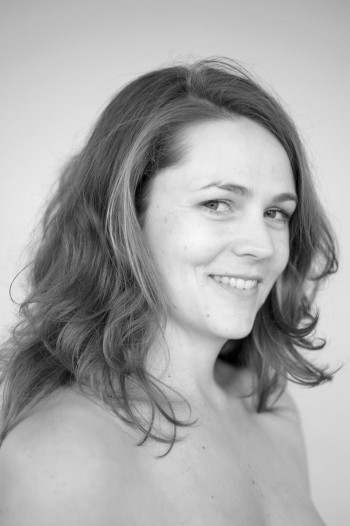
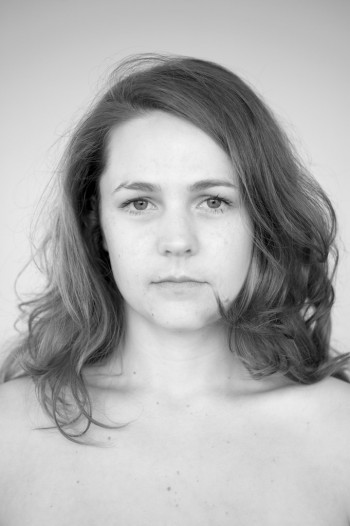
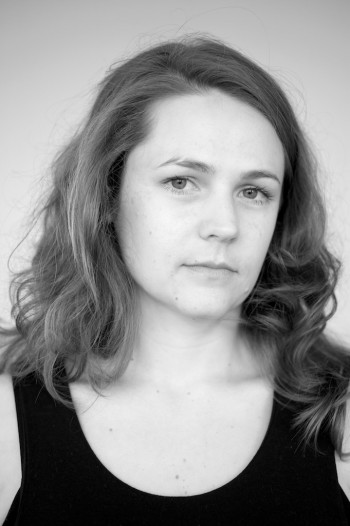
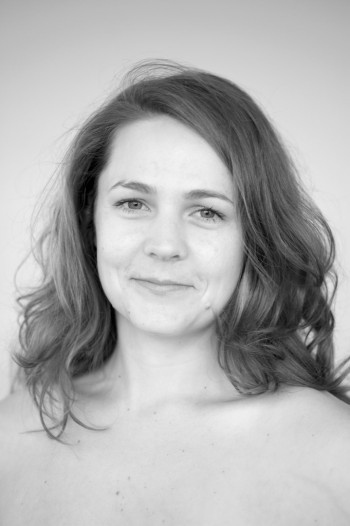
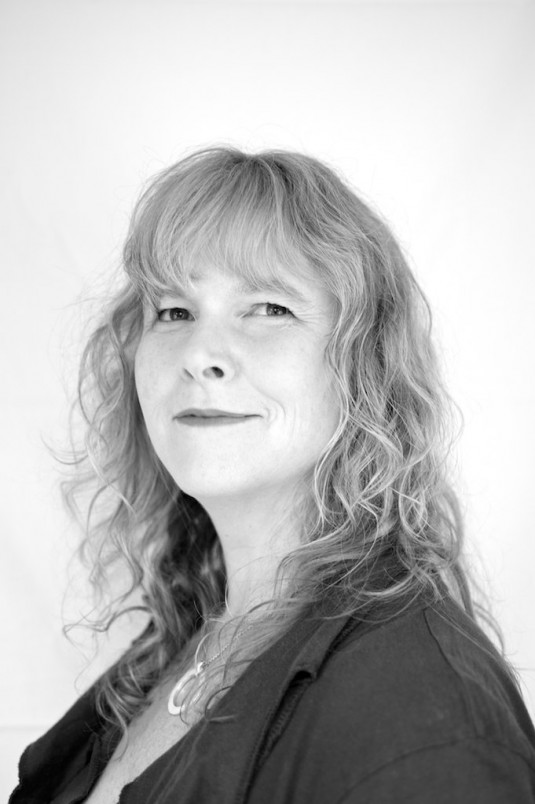
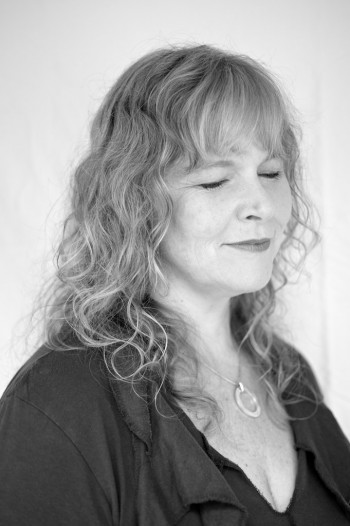
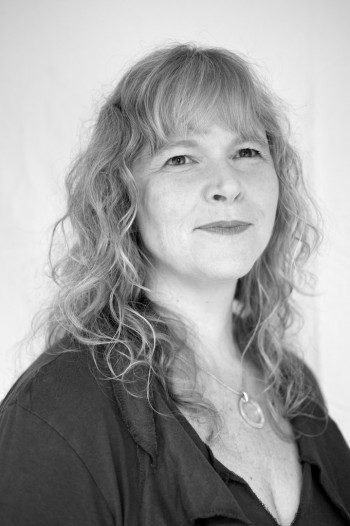
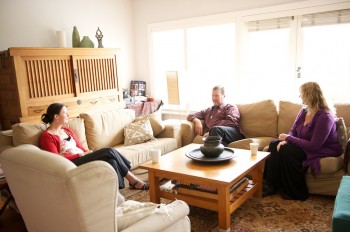
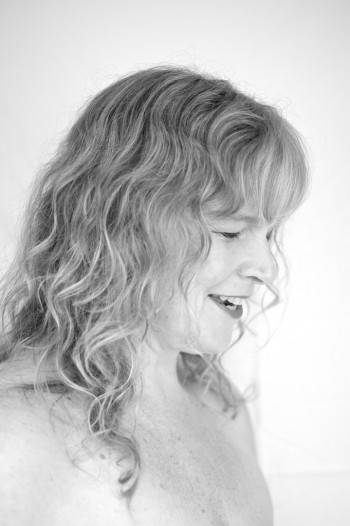
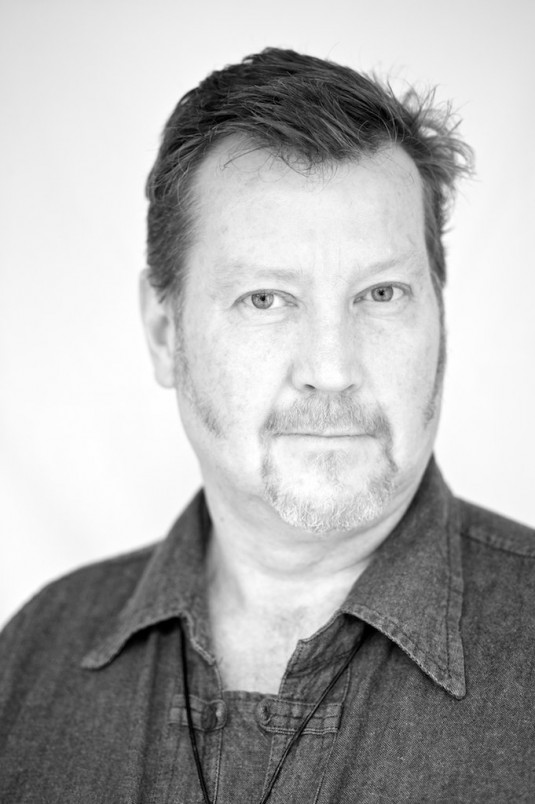 Anthony Ashworth
Anthony Ashworth